7 books you will psyche on and should totally read: What Youth


Let it go Lil’ Cryp.
Start the year off fresh.
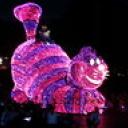

Up until recently I was never without a book. I'm sad to say the internet has really curbed my reading.
This year I resolve to read more.
Has anybody read 'Perfume' by Patrick Suskind? I heard it's pretty good.


Same here , Zen.
I would only read 10percent of offline content compared to what I used to . Sad. A few months without regular internet last year was a dream .
Perfume is a great book.


Ha ha!


A long and excellent and essential piece by Bruce Pascoe. Great voice, great writer.
https://griffithreview.com/articles/andrew-bolts-disappointment/?fbclid=...


Interesting.
I’ve not read Dark Emu , but I’ve heard mention of the accounts of indigenous houses within it. Anyone ever encountered a traditional aboriginal house or evidence or remnants of , in their travels ?


Have read Biggest Estate by Gammage. This is next on my list.


Matterhorn by Karl Marlantes .US marine served in Vietnam ,reckon he knows what went on.Intense read ,just finished it for the 3rd time.Fucken insane ,make of it what you will ,cheers.
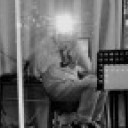

An Orchestra of Minorities - Chicozie Ibioma
In the tradition of Ben Okri and Chinua Achebe


Tell me , BB .
Not chasing a spoiler , but at the end of the book does the Nigerian protagonist finally elevate himself to a suitable level in society and attain enough wealth to satisfy her family , only to be unable to invest his fortune ?
Does he then require the banking details and private information of a foreign citizen in order to secure his wealth and attempts to locate this suitable candidate through unsolicited emails ?
Of course he would probably need a small advance payment initially in order to pay money transfer fees .


Might have to grab a copy.
"Rather, Gammage argues, the first Australians worked a complex system of land management, with fire their biggest ally, and drew on the life cycles of plants and the natural flow of water to ensure plentiful wildlife and plant foods throughout the year. They managed, he says, the biggest estate on Earth."
https://www.smh.com.au/entertainment/books/the-first-farmers-20110930-1l...
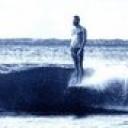

Given that Don Winslow predicated his cartel trilogy on the massive problem north America has with its insatiable appetite for cocaine, marijuana and meth, and given the long established import routes of these drugs from Guatemala, San Salvador and Columbia ... through Mexico and into the US by road transport .. is it any wonder Trump wants to dent the trade by raising a border wall?


Before the internet took hold...
https://longgoneloser.wordpress.com/2010/08/16/factotum-books/?fbclid=Iw...


"Someone in this thread recommended 'The Dry' by Jane Harper and I finally got around to reading that over the break. Had the potential to be Aussie pulp,"
May have been me, Stu. Yep, a great book by a new author, who has also done 'Force of Nature" and "The Lost Man".
I loved them, they're not as poetic as a Winton novel, but have all the atmosphere and sense of our land in them. You read them and know that someone who has not spent a lot of time in Australia would have no chance of writing them, a hidden menace behind everything, the knowledge that our land is dangerous, kills you easy as soon as you drop your guard and in so many ways.
And the people it produces.
Don't know how long since I've been on here so may have already recommended it, but "Boy Swallows Universe" is a cracking read. Could not believe that it was written by a guy who is a journalist at the Australian, not having been aware that anyone who works for Murdoch could write, and certainly unaware that thought was capable in that perverse domain.
But fuck me it's a good read. Read it in the Cook Islands last November in about 3 days. As we left, sitting at the airport was a young woman who was reading it, about half way through, and struck up a short but sweet conversation with her.
Has anyone else nominated that? Did I already? Apologies if going over old ground.


Also read 'Sapiens', finished recently, received as a Xmas present from the kids, they do know their old man well.
Great book, not startling in its content but just well laid out and points out quite sincerely how we look at our development as a species from Neanderthal onwards, and admits that we have no idea why Sapiens succeeded while neanderthal did not, suggesting in my mind at least that what they might have lacked was sheer bastardry and adept killing cunning. Not sure, but that was a take out from it.
Should concern anyone who does read it, giving hints that what has led to our great success as a species is probably what will see ourselves wipe ourselves out (my take-out again, not explicitly stated in the book, that I can remember)
Makes great points about how our 'advancement' through technology, right back to farming and staying put in places is also the point at which mankind went from living a relatively easy life, not a great deal of work, to suddenly working back-breaking long days to survive. You can take that line of thinking all the way up to today, where we're working harder than ever creating crap so we can buy more crap. Wonderful!
Took away on a trip to Bali an old book I first read about 20 years ago called 'The Holographic Universe', a trip down quantum physics into theories about how this could explain psychic phenomena, telekinesis, time warp/travel, seeing future and past, mysticism and plenty more. Not actually a good book to read in Bali, where animist spirits might still hold some sway, outside the Kuta/Legian region anyway.
Went back and checked some posts from a few years ago, will keep my eye out for anything by Fisk on the middle east (BB and others). I followed a lot of Fisk's work through the late 80s and 90's in particular and knew not where he went in the last decade. Perhaps he was writing the book you mentioned.
I won't believe anything I read about the middle east unless it has been written by Fisk or endorsed by him. Everything else is cant, in my honest opinion.
Having said that, I still have a book called 'A Brutal Friendship', by Said K. Aburish. I first started reading it about 10 or more years ago, can't remember how or who gave it to me, but got half way through it and have yet to finish it (put it down and have read a hundred other books since) but always meant to come back to it. It goes quite a ways back and informed me like no other in terms of how the middle east was created out of the dregs of the first world war and even earlier by western governments and the Arab elite. It wasn't easy going, but I could go back to it now with so much more behind me, and will start it again and finish before I'm gone. It's remarkable how little our education systems and journalism teaches us about our past, and the past of those governments we call allies.
Ignorance isn't bliss, but you don't know that if you're ignorant, it's one of those unknown unknowns.


This aging hooker I sat next to on the train up the coast was reading “ The hard yard “ by Hugh Jardon .
A bit much to swallow apparently.


Oh my lord, that's so fucked...


Lots happening in human evolution at the moment batfink. Well worth keeping up. I taught human evolution for many years and when students asked about how sapiens interacted with neanderthalensis, I would say that my best guess was "in every way possible". We know they produced offspring from DNA, we would be naive to think that there was no violence and there is no reason to think that peaceful co-existence was not possible!
I am currently reading The Power Broker by Robert A. Caro. It's a biography of one of the all time great bastards Robert Moses, who was the most powerful man in New York from the 1930s to the 1960s without ever holding elected office. Machiavelli was a beginner by comparison.


What about de-evolution, BB? Is it a thing?
Some of the thread comments elsewhere would suggest it is.


facto, evolution has no direction so de-evolution is just evolution. There is no reason why humans cannot evolve to be less intelligent, there are some researchers who suggest quite seriously that it has already happened.


Are we not men?


Trying my hardest to finish The House Of The Dead by Fyodor Dostoyevsky. It was recommended to me by a mate and I started off ok but half way through I can only get about 10 minutes in at a time them have to put it down. I want to stick it out to see what happens further along but I don’t like my chances...


Reading Hooked by G Bruce Knecht about the discovery, exploitation and high seas piracy involved in the hither unknown ( to exploitive commerce ) Patagonian toothfish.
The story is built around an epic oceanic pursuit of a pirate vessel by Australian customs and describes how and why those involved became involved the last great seafood gold rush.
Also (re) reading “ The ascent of money “ by Niall Ferguson. Intriguing account of the history of currency and its effect on our world.
Plus I’ve been nailing a pile of old surfing and fishing magazines scored for me at an op shop.


An ex-missus of mine's first real journalistic break was reporting on this Toothfish activity.






.


Great stuff facto. Just finished Dark Emu ............ pre-European invasion Australia as the most culturally (as opposed to technologically) advanced place on Earth? He makes a great case.


On this day, 18 June 1984, the battle of Orgreave took place when striking miners faced off against thousands of police as they attempted to blockade the Orgreave coking plant in the UK. The police showed the lengths they would go to to break the strike, with violent attacks, mass arrests and deliberate but fortunately unsuccessful attempts to fabricate evidence and frame miners. And the BBC reversed footage of miners defending themselves from police attacks to try to pretend police were attacked first.
https://libcom.org/history/tell-us-lies-about-miners-dave-douglass




Not a book, but the New Yorker is always a great read and - all bias aside - this article is a fascinating summary of the history of weather forecasting.
"Meteorology is so ubiquitous that it is easy to overlook its monumental achievement: the power to predict the future."
https://www.newyorker.com/magazine/2019/07/01/why-weather-forecasting-ke...


Great read Ben, are you getting the book?


Hannah's book, or the print edition of the New Yorker that had this article?


I read the article and was thinking about buying the book.


“The other superior expedient is to establish settlements in one or two places ; these will, as it were , fetter the state to you. Unless you establish settlements , you will have to garrison large numbers of mounted troops and infantry. Settlements do not cost much , and the prince can found them and maintain them at little or no personal expense. He injures only those from whom he takes the land and houses to give to the new inhabitants, and these victims form a tiny minority, and can never do any harm since they remain por and scattered. All the others are left undisturbed , and so should stay quiet , as well as this they are frightened to do wrong lest what happened to the dispossessed should happen to them. To sum up , settlements are economical and more faithful , and do less harm ; and those who are injured cannot hurt you because, as I said , they are scattered and poor. And here it must be noted that men must be either pampered or crushed, because they can get revenge for small injuries but not for grievous ones. So any injury a prince does a man must be of such a kind that there is no fear of revenge. “
The Prince : Niccolo Machiavelli.
Just read this book last week and was pondering on its real applications for modern times. I immediately thought of Australia in two contexts , that of the English usurpation from the indigenous, and that of the commencing Chinese usurpation from modern Australians.
I’d say we are at the periodic equivalent of 1795 should you wish to draw parallels with the previous occupation. Settlements centred around the East coast ports still in a minority to the legacy inhabitants.
Great review BTW , Stu. I’ve been meaning to read them myself. Better hide the razor blades when I do so.


Interesting Stu. My view is that there is a real upside for Australia in the rise of China. We have derived no significant benefit from the US alliance since world war 2 and have paid significant costs in terms of our involvement in their unnecessary wars. The rise of China gives us a reason and an opportunity to develop a more independent and Asian focused foreign policy that will serve our long term interests much better than our current all the way with the USA approach. China's only territorial ambitions are Hong Kong, to which they have every legal, if not ethical, right, and Taiwan which is slowly being economically absorbed and is nit under any immediate threat. Australia also needs to recognise that the world is changing. We will need to accommodate Chinese power but the costs of this may turn out to be much less than our involvement in all those ill considered US wars.


So Stu what threats did they protect us from? There have been various low level conflicts in our region but nothing, in my recollection, that ever posed a significant threat to Australia. Against that, our US alliance turned us into a nuclear target, should a serious war break out. The price the US wanted, and has extracted over a long period, is political acquiescence in their military adventures, including those whose only real reason was domestic political advantage.


Laurie , Your post reads like the kind of crap people get paid to post, given that you keep expressing doubt about the threat of China which is increasingly an absurd position, are you on someone's payroll to post this stuff or have you just been sucked in by bullshit?


I reckon we've paid a fair old price Stu - a vassal state both culturally and militarily?
It seems quite clear that at least since Whitlam, the direction of the country has been guided by the CIA.


Andy - What of it ?
If our politicians hadn’t bent over backwards to accomodate the desire of every corrupting corporation we’d be maintaining the enviable position of safest , richest , happiest , prosperous , most environmentally pristine and most stable country in the world for generations to come yet.
We were gong swimmingly till extreme neoliberalism took hold in recent years. ( the last decade )


But they're closely related yeah?
Being a vassal state for the Yanks and being bent over so comprehensively by neoliberalism?
Hand in glove.
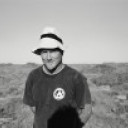

"We have derived no significant benefit from the US alliance since world war 2 and have paid significant costs in terms of our involvement in their unnecessary wars."
Nonsense. 75 years of peace and stability with rule of law, free press, free association, stable borders etc etc. We are still one of the wealthiest, most secure countries on Earth because of those reasons.
One of the things that stands out most when you look at the historical record of involvement in post WW2 conflict where Aus has gone "all the way with LBJ", is just how little our commitment involved in terms of troops and equipment.
It's been token.
eg 521 Aus troops died in Vietnam. All respect to the dead but that is not even a yearly road toll.
America lost 58, 220 troops in the same conflict.
America lost around 7000 troops in Iraq and Afghanistan.
Australia lost 41 in both conflicts.
There were heavy prices to be paid for local inhabitants in both conflicts but Australia sure didn't bear them.
We've gained a lot and paid a pittance for the privilege of the US power umbrella in the Asia/Pacific.
By contrast we paid a heavy price of over 60000 men defending the Empire in WW1.
I think those things we take for granted will seem a whole lot more precious in restrospect when the next biggest bully in the yard has no such regard for the liberal rights we have enjoyed.

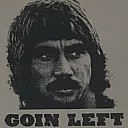
 [/url]
[/url]

Here's a list that gladdens. What Youth and "7 books you will psyche on and should totally read."
http://www.whatyouth.com/2014/02/14/radical-class-2/?id=16859
I often bemoan the fact that good writing is a dying art. It ain't necessarily true but it sometimes feels that way. The yoof, it always seemed to me, could buy a Canikon for a couple hunge, flood the 'net with images, and call 'emselves artists - easy! But unlike photography there's no shortcut to good writing: no autofocus, no colour correcting software - it's hard fucken work. And the first step toward it is to read lots and lots of great writers. So yeah, glad to see the yoof - What Yoof! - spruiking seven good books. Bit limited in scope and style but a good list nonetheless.